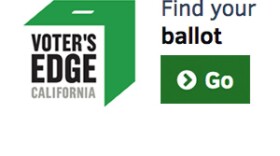Supporters of Democratic presidential candidate Bernie Sanders filed a lawsuit last week alleging widespread confusion over California’s primary rules.
It focuses on a requirement that nonpartisan voters who are signed up to vote by mail must request a specific ballot if they want to vote for president.
Less than 15 percent of California’s nonpartisan mail voters have requested a presidential primary ballot, according to Political Data Inc., a company that provides voter information to campaigns.
What about San Diego County?
Among the county’s 400,000 nonpartisan mail voters, 8 percent have requested a ballot to vote in the Democratic presidential primary, Registrar of Voters Michael Vu told KPBS Midday Edition on Tuesday.
He said that in March his office sent applications to nonpartisan mail ballot voters asking them which ballot they preferred. Those who didn’t respond received a nonpartisan ballot.
Vu expects more nonpartisan mail voters to request new ballots — they have until May 31 to do so by mail. They can also go to the registrar’s office or show up at the polling place to surrender their nonpartisan ballot and make the request.
Vu said election officials know that the presidential primary election can be complex, even more than the general election in November due to the intricacies of who gets a say in nominating a candidate in political parties.
“Great lengths were made to make sure that San Diego County voters are informed and continue to be informed in this area,” Vu said.







